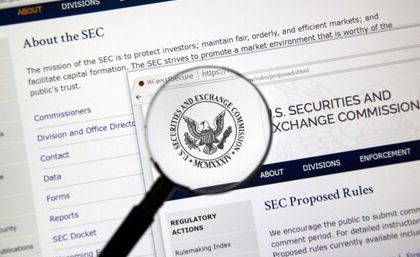In a joint statement, the head of Securities Exchange Commission (SEC), Commodity Futures Trading Commission (CFTC) and Financial Crimes Enforcement Network (FinCEN) issued an open letter, addressing the firms involved in the crypto industry.
The statement released on October 11 remarks the serious concerns of three US financial regulators – in fact, it was signed by CFTC’s Chairman Heath Tarbert, FinCEN’s Director Kenneth Blanco, and SEC’s Chairman Jay Clayton.
According to the agencies, the crypto space must abide by various banking and financial services laws in the United States. Notably, the chairmen of these agencies emphasized the obligations under the Bank Secrecy Act (BSA), anti-money laundering (AML) policies alongside countering terror financing using cryptocurrencies.
Regulators have been quite serious to prevent illicit activities happening around the crypto industry. As such, they recommend the crypto industry to follow the Bank Secrecy Act (BSA) that encourages collaboration with the US Government, particularly for money laundering and fraud. The regulators said in an official release;
Regardless of the label or terminology that market participants may use, or the level or type of technology employed, it is the facts and circumstances underlying an asset, activity or service, including its economic reality and use (whether intended or organically developed or repurposed), that determines the general categorization of an asset, the specific regulatory treatment of the activity involving the asset, and whether the persons involved are ‘financial institutions’ for purposes of the BSA.”
In a continuous statement, regulators note that the nature of digital asset-related activities will also be identified via complying with BSA rules. They said the identification of digital assets would enable users/investors to understand “how they should register with the CFTC, FinCEN or the SEC” and certain other laws that they must abide by. Conclusively, the press release specifies that the BSA obligations are very broadly defined for financial transactions regardless of what companies call their offerings – security, or a commodity.
Moreover, it also seeks that the companies engaging in financial dealings must define their products and accordingly seeks permission from the US’s top regulators. Subsequently, they are also encouraged to “report suspicious activity and implement a reasonably-designed AML program”.
Image Source – Shutterstock
Notice: Information contained herein is not and should not be construed as an offer, solicitation, or recommendation to buy or sell securities. The information has been obtained from sources we believe to be reliable; however no guarantee is made or implied with respect to its accuracy, timeliness, or completeness. Authors may own the crypto currency they discuss. The information and content are subject to change without notice. Visionary Financial and its affiliates do not provide investment, tax, legal or accounting advice. This material has been prepared for informational purposes only and is the opinion of the author, and is not intended to provide, and should not be relied on for, investment, tax, legal, accounting advice. You should consult your own investment, tax, legal and accounting advisors before engaging in any transaction. All content published by Visionary Financial is not an endorsement whatsoever. Visionary Financial was not compensated to submit this article Please also visit our Privacy policy; disclaimer; and terms and conditions page for further information.

